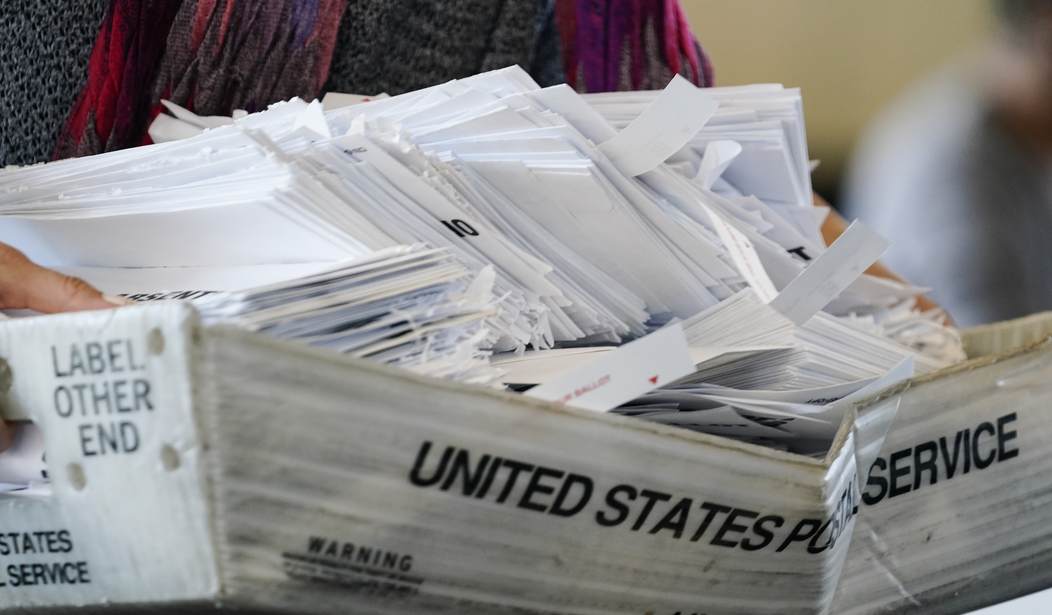Democrats in Wisconsin are still working furiously to find a way to swing the next election in their direction. One method might be to make their case to the voters and convince them that their policies and ideas will work out better in the long run. But that would be too boring. Instead, they’ve found a judge who agreed to allow the Elections Commission to accept incomplete mail-in ballots. Now the Elections Commission is scrambling to put the changes in place, further expanding the flood of expected mail-in ballots. Of course, the missing information on the ballots – specifically the lack of a complete address of a witness to the ballot being filled out – will make it impossible to quickly verify the information as required by election laws. But why let a little thing like that stop you? (AP)
The Wisconsin Elections Commission will likely vote next week on how to implement a judge’s ruling allowing election clerks to accept absentee ballots that have partial witness addresses, a decision that is expected to expand the number of ballots that will be counted in battleground Wisconsin.
Each of the last two presidential elections in Wisconsin was decided by fewer than 23,000 votes. Polls show another razor-tight race this year between President Joe Biden and former President Donald Trump.
Ever since Trump’s defeat in Wisconsin in 2020, Republicans have been fighting in court to tighten the rules to limit how many absentee ballots can be accepted.
Supporters of the plaintiffs in the case, the Wisconsin League of Women Voters, consistently refer to these ballots as having “minor technical errors.” But how is leaving out part of the witness’s address considered a “technical error?” The law requires the voter to include the name and address of the witness in case questions are raised when verifying the validity of the ballot. If some of the information is missing, there may be no way to quickly identify and contact the witness. Previously, such an omission was defined as a disqualifying flaw and the ballot would not be counted.
Keep in mind that the last two presidential elections in Wisconsin were decided by a handful of thousands of votes. The Democrats have perfected the art of promoting massive early voting by mail and ballot harvesting. Now there will potentially be even more flawed ballots dumped into the mix. We’ve already seen the sort of mischief that this sort of system can lead to in places like Bridgeport, Connecticut. A similar, widespread, concerted effort in a place like Wisconsin could flip the entire state if the race is as close as most anticipate it will be.
If the GOP can’t win a court battle seeking to reject flawed ballots, their chances probably drop even further. It’s still possible that Joe Biden’s performance has been so abysmal that a significant chunk of those who would normally support him by default will stay home or vote for a third-party alternative. That could be particularly true among Arab-American Wisconsinites who are upset over his perceived support for Israel. But we can’t rely on that. For many progressives, the prospect of the Bad Orange Man returning will likely be enough to make them vote for a President who they themselves can’t even stand.
Jon Sherman of the Fair Elections Center was behind the court case pushing for the change to the rules. He referred to the rejection of flawed ballots as “disenfranchisement.” But that’s just more of the same dishonesty we’ve heard from the left throughout this debate. Nobody who received a legal blank ballot in a timely fashion was disenfranchised. They were given the same opportunity to vote as all other eligible citizens. But they need to follow the same procedures that are expected of everyone else. Even if their ballot was damaged or destroyed, they would still have the option of either requesting a replacement or going to vote in person. It’s not the fault of the state if someone is too careless to properly fill out their ballot. That’s even more true if the omission was intentional. Perhaps the voter didn’t want anyone contacting their witnesses? We may never know.







